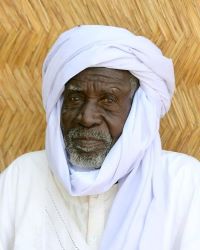Buduma in Nigeria

Photo Source:
Carsten ten Brink - Flickr
Creative Commons
|
Send Joshua Project a map of this people group.
|
| People Name: | Buduma |
| Country: | Nigeria |
| 10/40 Window: | Yes |
| Population: | 8,400 |
| World Population: | 177,400 |
| Primary Language: | Buduma |
| Primary Religion: | Islam |
| Christian Adherents: | 1.00 % |
| Evangelicals: | 1.00 % |
| Scripture: | Portions |
| Ministry Resources: | No |
| Jesus Film: | No |
| Audio Recordings: | Yes |
| People Cluster: | Chadic |
| Affinity Bloc: | Sub-Saharan Peoples |
| Progress Level: |
|
Introduction / History
The Buduma live on many islands located within Lake Chad. This historically large, shallow lake is located where Chad, Cameroon, Nigeria and Niger meet. Although the shores of Lake Chad have long been inhabited by populations of mixed origin, the Buduma have managed to preserve their identity and homeland. They have resisted outside influences throughout history, remaining a fiercely independent people who, even today, are ruled by their own chiefs.
In the past, the Buduma carried out raids on the cattle herds of their neighbors. They were respected but avoided. Today, they are a peaceful people willing to adopt some modern changes. Although their neighbors call them Buduma, they prefer to be called Yedina. Their language is known as Buduma.
What Are Their Lives Like?
Most Yedina Buduma are cattle herders or fishermen. They live on the more stable islands of Lake Chad in permanent villages. These scattered villages are enclosed by reed fences. Buduma weave their huts from papyrus reeds, so that the huts can be easily lifted and moved to higher ground when the lake rises. The village life and economy of the Yedina Buduma center on their cattle and, to a much lesser extent, on their crops of wheat and millet. Buduma cattle have distinct horns which are especially long. These hollow horns help the cattle to swim when they lean their heads back in the water. Yedina Buduma do not use their cattle for meat but for milk and sacrifices only.
During the dry season, all able-bodied Yedina Buduma move to the floating islands to establish temporary camps. These islands are really floating rafts of matted vegetation, sometimes drifting and sometimes anchored by roots.
Throughout the dry season, Yedina Buduma depend on fishing for their livelihood. They are well-known for their distinctive papyrus reed boats. Buduma use the smaller of these crafts for fishing and the larger ones for transporting cattle or for prolonged family accommodation. Although the Buduma formerly fished only for their own consumption, they now also fish commercially, transporting dried fish to Nigerian markets for trade. This new pattern of commerce has enabled the Yedina Buduma to purchase material goods they have been unable to produce themselves.
Unlike the diet of any other people in Africa, the Yedina Buduma diet is based on cow's milk and fish, with only a few cereal products. Their high protein diet has given them the strength to be excellent swimmers.
They teach their children necessary life skills; swimming, how to mend nets and fishing skills. When a boy reaches 15 he is circumcised, marking him as a man. Men do not marry until their late twenties, usually marrying younger women.
Buduma place a high value on preserving their distinct culture so they marry within their own people group. Some Buduma men may intermarry with neighboring Kanembu women. A Buduma woman will never marry a "mainland" man.
What Are Their Beliefs?
The Buduma are largely Muslim. They also believe in the god Kumani, founder of the world, and put faith in priests who they believe will appease the spirits for them.
What Are Their Needs?
The Buduma only have Bible portions in their language. Most have never had an opportunity to hear the gospel.
Prayer Points
Pray that God will use African believers to share the love of Jesus with their own people.
Ask the Holy Spirit to grant wisdom and favor to mission agencies working with the Buduma.
Pray for the Lord to send dreams and visions to Buduma elders and family leaders, opening hearts to the gospel.
Pray for a complete Bible for the Buduma people of Nigeria.